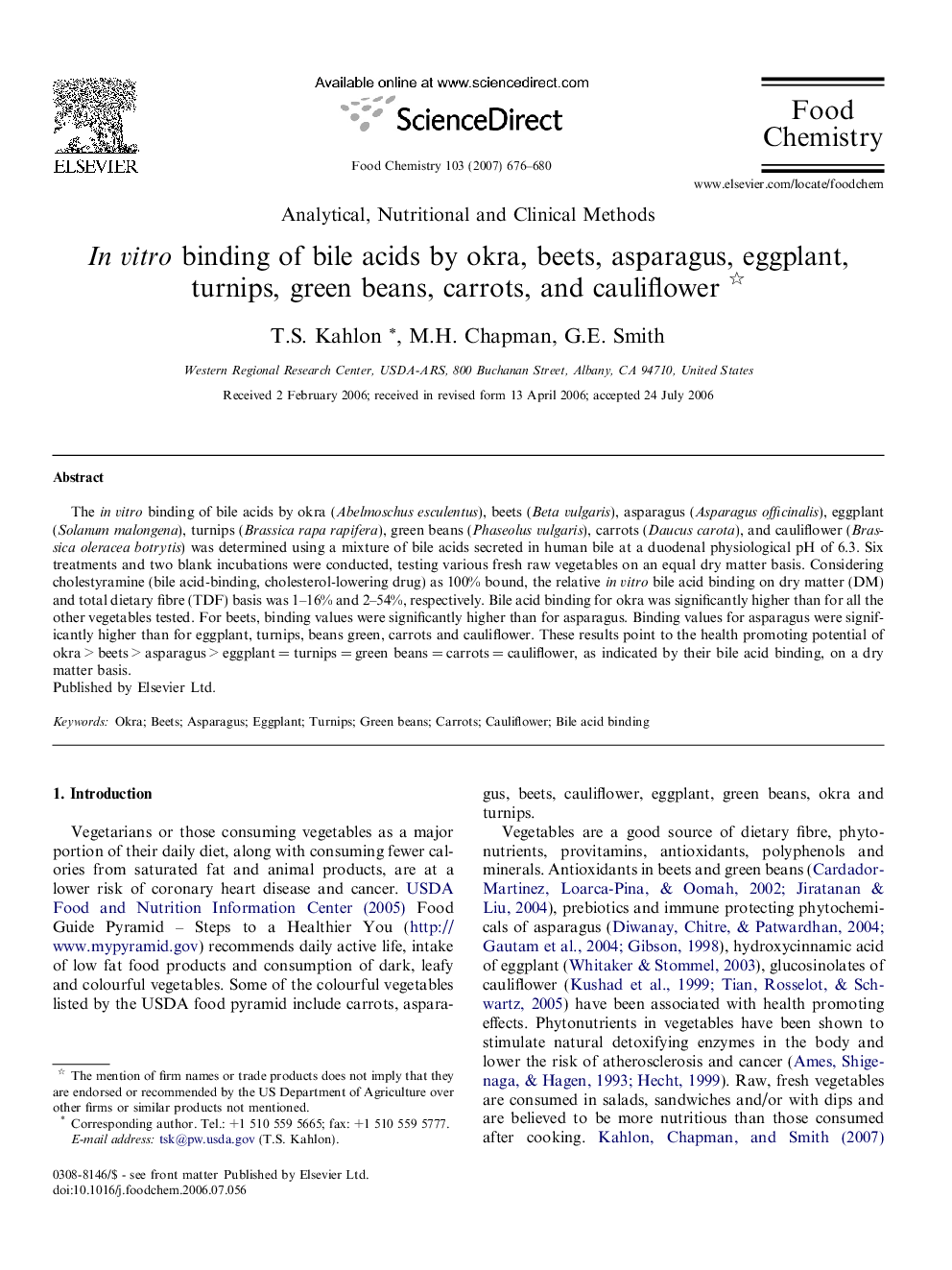| Article ID | Journal | Published Year | Pages | File Type |
|---|---|---|---|---|
| 1190637 | Food Chemistry | 2007 | 5 Pages |
The in vitro binding of bile acids by okra (Abelmoschus esculentus), beets (Beta vulgaris), asparagus (Asparagus officinalis), eggplant (Solanum malongena), turnips (Brassica rapa rapifera), green beans (Phaseolus vulgaris), carrots (Daucus carota), and cauliflower (Brassica oleracea botrytis) was determined using a mixture of bile acids secreted in human bile at a duodenal physiological pH of 6.3. Six treatments and two blank incubations were conducted, testing various fresh raw vegetables on an equal dry matter basis. Considering cholestyramine (bile acid-binding, cholesterol-lowering drug) as 100% bound, the relative in vitro bile acid binding on dry matter (DM) and total dietary fibre (TDF) basis was 1–16% and 2–54%, respectively. Bile acid binding for okra was significantly higher than for all the other vegetables tested. For beets, binding values were significantly higher than for asparagus. Binding values for asparagus were significantly higher than for eggplant, turnips, beans green, carrots and cauliflower. These results point to the health promoting potential of okra > beets > asparagus > eggplant = turnips = green beans = carrots = cauliflower, as indicated by their bile acid binding, on a dry matter basis.
